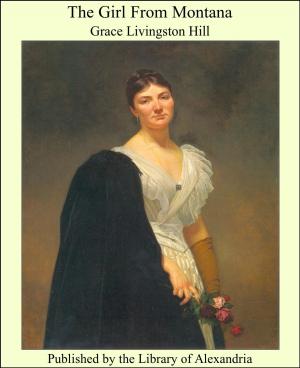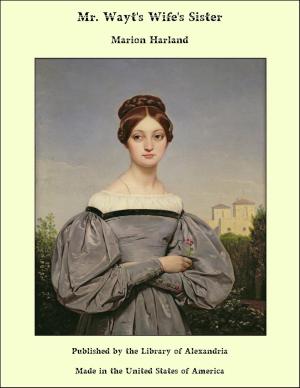| Author: | Horatio Barber | ISBN: | 9781465526236 |
| Publisher: | Library of Alexandria | Publication: | March 8, 2015 |
| Imprint: | Language: | English |
| Author: | Horatio Barber |
| ISBN: | 9781465526236 |
| Publisher: | Library of Alexandria |
| Publication: | March 8, 2015 |
| Imprint: | |
| Language: | English |
Mrs. Sam Wyndham was generally at home after five o’clock. The established custom whereby the ladies who live in Beacon Street all receive their friends on Monday afternoon did not seem to her satisfactory. She was willing to conform to the practice, but she reserved the right of seeing people on Other days as well. Mrs. Sam Wyndham was never very popular. That is to say, she was not one of those women who are seemingly never spoken ill of, and are invited as a matter of course, or rather as an element of success, to every dinner, musical party, and dance in the season. Women did not all regard her with envy, all young men did not think she was capital fun, nor did all old men come and confide to her the weaknesses of their approaching second childhood. She was not invariably quoted as the standard authority on dress, classical music, and Boston literature, and it was not an unpardonable heresy to say that some Other women might be, had been, or could be, more amusing in ordinary conversation. Nevertheless, Mrs. Sam Wyndham held a position in Boston which Boston acknowledged, and which Boston insisted that foreigners such as New Yorkers, Philadelphians and the like, should acknowledge also in that spirit of reverence which is justly due to a descent on both sides from several signers of the Declaration of Independence, and to the wife of one of the ruling financial spirits of the aristocratic part of Boston business. As a matter of fact, Mrs. Wyndham was about forty years of age, as all her friends of course knew; for it is as easy for a Bostonian to conceal a question of age as for a crowned head. In a place where one half of society calls the Other half cousin, and went to school with it, every one knows and accurately remembers just how old everybody else is. But Mrs. Wyndham might have passed for younger than she was among the world at large, for she was fresh to look at, and of good figure and complexion. Her black hair showed no signs of turning gray, and her dark eyes were bright and penetrating still. There were lines in her face, those microscopic lines that come so abundantly to American women in middle age, speaking of a certain restless nervousness that belongs to them especially; but on the whole Mrs. Sam Wyndham was fair to see, having a dignity of carriage and a grace of ease about her that at once gave the impression of a woman thoroughly equal to the part she had to play in the world, and not by any means incapable of enjoying it
Mrs. Sam Wyndham was generally at home after five o’clock. The established custom whereby the ladies who live in Beacon Street all receive their friends on Monday afternoon did not seem to her satisfactory. She was willing to conform to the practice, but she reserved the right of seeing people on Other days as well. Mrs. Sam Wyndham was never very popular. That is to say, she was not one of those women who are seemingly never spoken ill of, and are invited as a matter of course, or rather as an element of success, to every dinner, musical party, and dance in the season. Women did not all regard her with envy, all young men did not think she was capital fun, nor did all old men come and confide to her the weaknesses of their approaching second childhood. She was not invariably quoted as the standard authority on dress, classical music, and Boston literature, and it was not an unpardonable heresy to say that some Other women might be, had been, or could be, more amusing in ordinary conversation. Nevertheless, Mrs. Sam Wyndham held a position in Boston which Boston acknowledged, and which Boston insisted that foreigners such as New Yorkers, Philadelphians and the like, should acknowledge also in that spirit of reverence which is justly due to a descent on both sides from several signers of the Declaration of Independence, and to the wife of one of the ruling financial spirits of the aristocratic part of Boston business. As a matter of fact, Mrs. Wyndham was about forty years of age, as all her friends of course knew; for it is as easy for a Bostonian to conceal a question of age as for a crowned head. In a place where one half of society calls the Other half cousin, and went to school with it, every one knows and accurately remembers just how old everybody else is. But Mrs. Wyndham might have passed for younger than she was among the world at large, for she was fresh to look at, and of good figure and complexion. Her black hair showed no signs of turning gray, and her dark eyes were bright and penetrating still. There were lines in her face, those microscopic lines that come so abundantly to American women in middle age, speaking of a certain restless nervousness that belongs to them especially; but on the whole Mrs. Sam Wyndham was fair to see, having a dignity of carriage and a grace of ease about her that at once gave the impression of a woman thoroughly equal to the part she had to play in the world, and not by any means incapable of enjoying it















